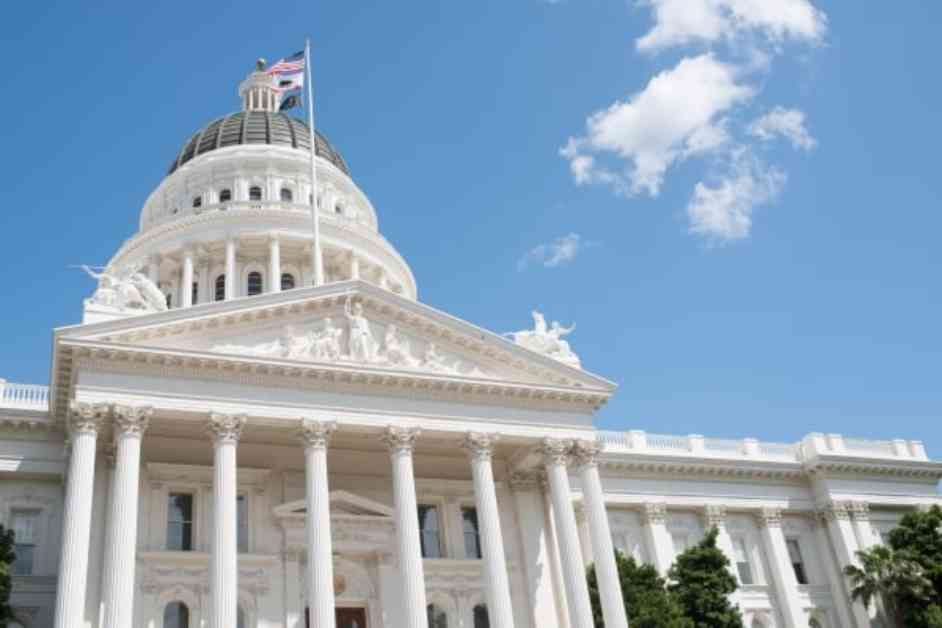Building a Pathway from College to Politics: A Vision for the Future
In the midst of a tumultuous political landscape marred by corruption and inequality, the need for a stronger connection between our educational institutions and the government has never been more pressing. It is evident that electing officials who primarily cater to the elite class is not sustainable for our society. The dominance of wealthy, heterosexual, white males in legislative bodies does not bode well for effective governance.
A society that aims to be truly reflective and sustainable must not only focus on environmental issues but also on social sustainability. One crucial step towards achieving this is to diversify our legislative bodies to mirror the demographics of our population. By nurturing a new generation of political leaders through public regional universities, we can establish a postsecondary-to-political pipeline that embraces disciplines like sociology, ethnic studies, gender studies, and environmental studies.
Public regional universities play a vital role in providing inclusive education, with a student body that represents a wide range of backgrounds. Students from working- and middle-class families, as well as students of color, make up a significant portion of these institutions. By increasing the number of legislators who are alumni of public regional universities, we can take a significant stride towards social sustainability.
The impact of legislators’ educational backgrounds on policy decisions is evident in various studies. For instance, research has shown that legislatures with a higher percentage of lawmakers educated in public higher education systems tend to allocate more funding to public higher education. This correlation underscores the importance of having policymakers who have experienced the public education system firsthand.
One notable example of a public university-educated leader is Tim Walz, the governor of Minnesota and the newest vice presidential candidate. Walz, a graduate of Chadron State College and Minnesota State University, Mankato, has demonstrated a strong commitment to public education. His advocacy for a $2.3 billion education bill highlights the positive influence that publicly educated leaders can have on policy decisions.
To cultivate a robust postsecondary-to-politics pipeline, students interested in pursuing a political career should be provided with a clear roadmap of relevant courses. Instead of solely focusing on traditional disciplines like economics and political science, we should encourage a curriculum that emphasizes sociology, ethnic studies, gender studies, and environmental studies. These fields offer unique perspectives and insights that can help bridge societal divides.
In addition to academic coursework, students can benefit from engaging with instructors who have experience in legislative bodies. By integrating discussions on legislative policies into various disciplines, universities can create a more holistic learning environment that prepares students for political engagement.
Networking opportunities with local, state, and federal representatives can also play a crucial role in shaping future political leaders. Building social capital through connections with policymakers can provide students with valuable insights and opportunities for involvement in the political arena.
The integration of ethnic studies courses into secondary schools and higher education institutions in California serves as a model for promoting diversity and inclusion in education. By following suit and developing postsecondary-to-political pipelines, we can empower students to actively engage in politics at all levels of government, thereby enhancing the legitimacy of our political system.
Public regional universities must go beyond merely educating students and take proactive steps to facilitate a seamless transition for graduates into the realm of government and policymaking. By establishing a clear pathway from our diverse public regional university systems to political chambers, we can cultivate a new generation of leaders who are equipped to address the complex challenges facing our society.
In an era marked by increasing polarization and threats to education, it is crucial to invest in a well-rounded cadre of politically knowledgeable individuals. A robust postsecondary-to-political pipeline that prioritizes sociology, ethnic studies, gender studies, and environmental studies can help elevate publicly educated leaders who are committed to creating a more sustainable political future for all.
As we navigate through turbulent times, it is imperative that we prioritize the development of a diverse and informed political leadership. By fostering a strong connection between our educational institutions and the government, we can pave the way for a more inclusive and equitable society. The vision for building a pathway from college to politics holds the promise of a brighter and more sustainable future for all.




















